
One year on: life inside Ukraine
Hear what life is like for three families affected by the war.

Hear what life is like for three families affected by the war.
More than one year on, the war in Ukraine continues to impact millions of lives worldwide. For many families inside the country, the war has ripped away the life they once knew. Family gatherings, school days with friends and lunches with work colleagues have been replaced with air raids, missile strikes and blackouts.
For the past year, the International Rescue Committee (IRC) has worked with local partners in Ukraine, Poland, and Moldova to reach people with emergency support, including blankets, heaters and warm clothing, cash assistance, and safe spaces for women and children. Our response has reached over 2.7 million Ukrainian refugees worldwide and 414,500 people in Ukraine with crucial on-the-ground support and online information services.
Well into 2023, the war has no end in sight.
Below, three stories from inside Ukraine illustrate how the war impacts ordinary people and their loved ones.
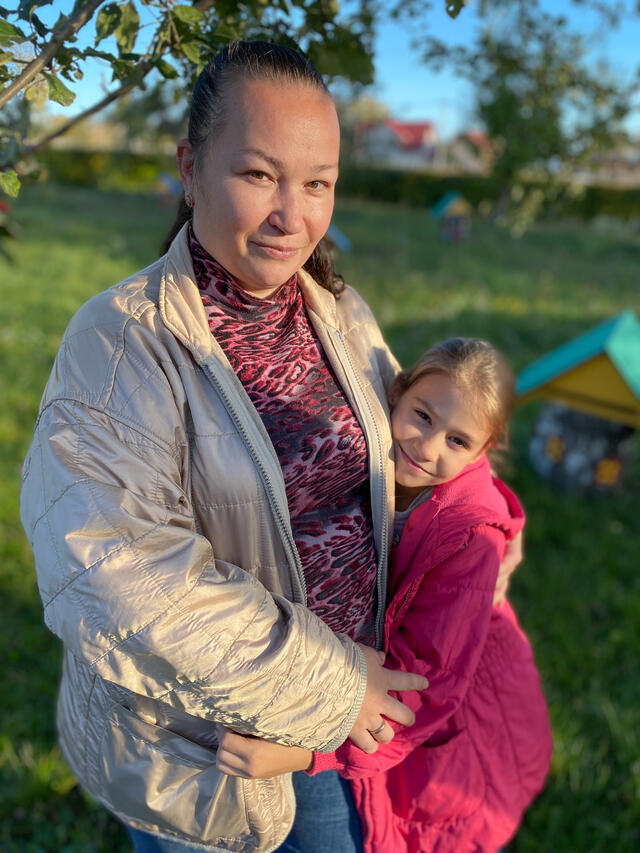
Irina, 44, and her eldest daughter Safiya, 9, are no strangers to conflict. In 2014, when Safiya wasn’t yet 2 years old, they fled their home in the Donbas region to escape ongoing violence. After a year and a half they were able to return home - until the conflict escalated into a war in 2022.
This time, Irina didn’t want to leave her hometown. She’d been working as an accountant in a grocery store and was on maternity leave with her third child. She was also looking after her 94-year-old mother after her father had died.
“Gunshots, explosions started in the city,” she recalls. “One night, I took the baby into the corridor, put the chair on [the front door]...We slept in the corridor.”
The next night, the explosions were closer. Irina realised it was time to evacuate, so she and her husband packed their car and drove west, staying in shelters set up in church basements. They knew they had to find someplace more permanent for the children.
Vinnytsia, a small city in the center of the country, was known as a refuge where humanitarian aid and housing were available. Upon arriving, Irina felt at home among the old buildings and cobblestone streets.
“Our family registered for benefits,” Irina says. “We receive food packages. We live now thanks to the fact that humanitarian aid is given out in the city.”
For Safiya, however, war brought lasting trauma.
“She had fears all the time,” Irina says. “At home, before we left, there were always sounds of shooting in the background. She didn't want to sleep every night. It started a psychological problem.”
Safiya receives psychological support through the IRC’s Safe Healing and Learning Centre, which reduces her anxiety and improves her well-being. She is developing social skills by making new friends and participating in classroom activities.
“I like these classes,” she says. “These friends, they are so cool.”
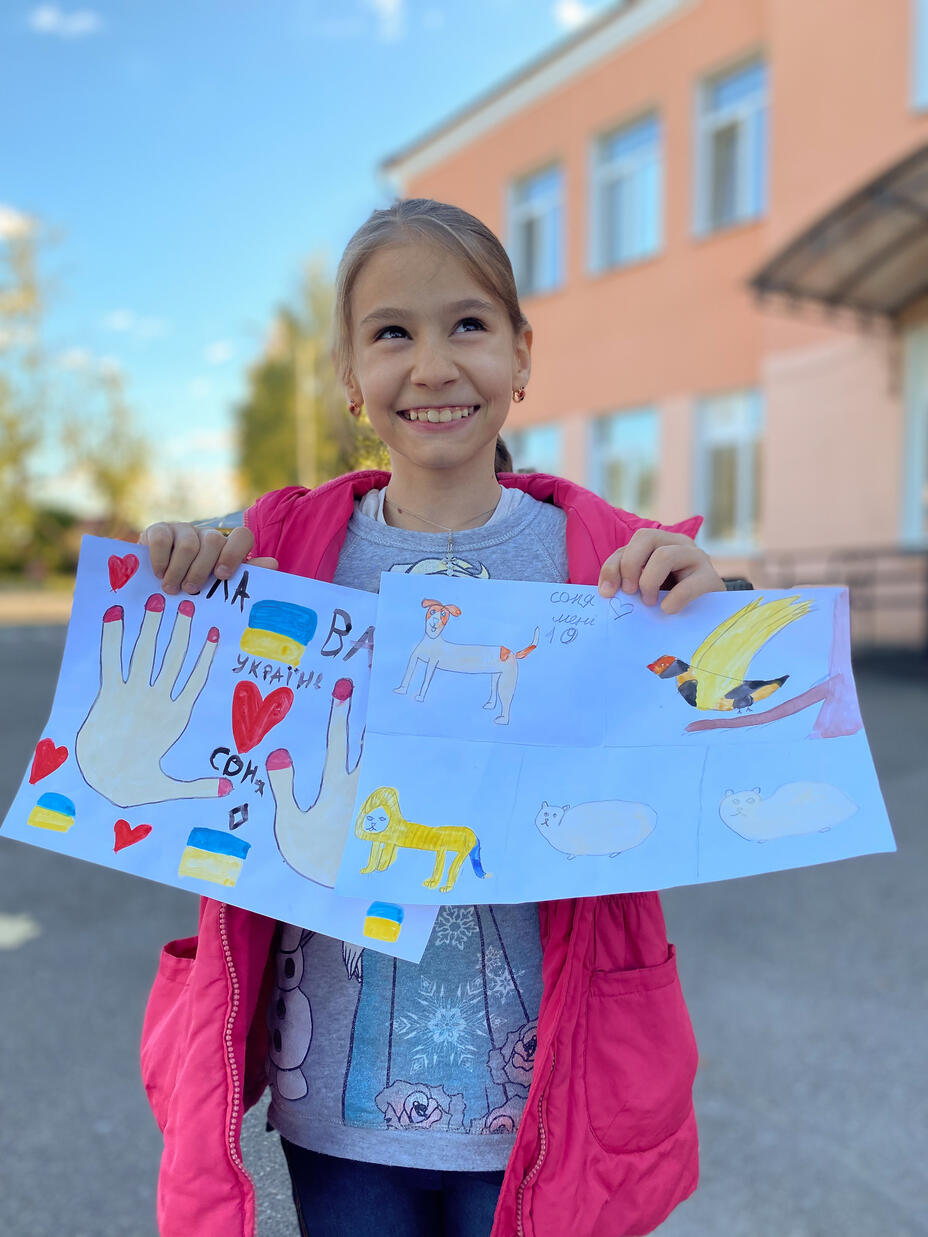
Irina doesn’t expect to return home soon. “There is no gas, no water, no electricity there. No one knows when it will be fixed. Now, in winter, the plumbing freezes, and we'll have to redo all the houses.”
For now, Irina is determined to create a sense of normalcy for her family, and perhaps make Vinnytsia their new home.
“I want to buy a house in the long term,” she says. “My husband works and I will also be going back to work after maternity leave. I have worked as a salesperson and an accountant. I think I can find myself here.”
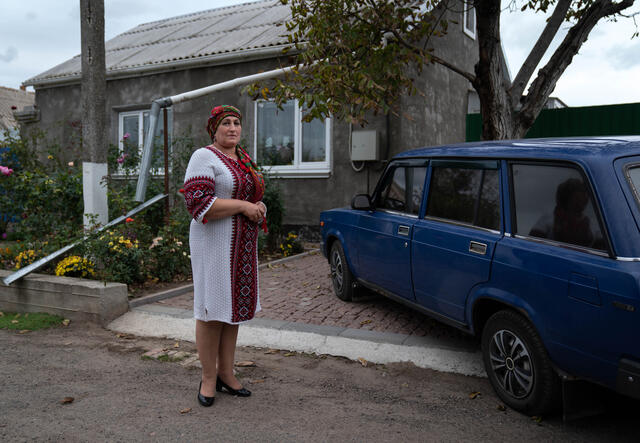
Before the war in Ukraine, Olga, 57, was always active. On weekdays, she worked as a blade modeller at a turbine factory in Mykolaiv. In her free time, she rehearsed and traveled to festivals with her Ukrainian folklore ensemble, Zoryanochka.
War upended Olga’s life. She lost her job, her folklore troupe dispersed and, worst of all, she became separated from her children, an experience too painful for her to speak about.
As their city came under heavy fire, Olga and her husband hid in their cellar along with their neighbours. They tried to evacuate to her sister’s home, but Olga became restless, so she returned home and focused on cookingand providing food for others in need.
“I can't sit at home,” she says. “I have to do something.”
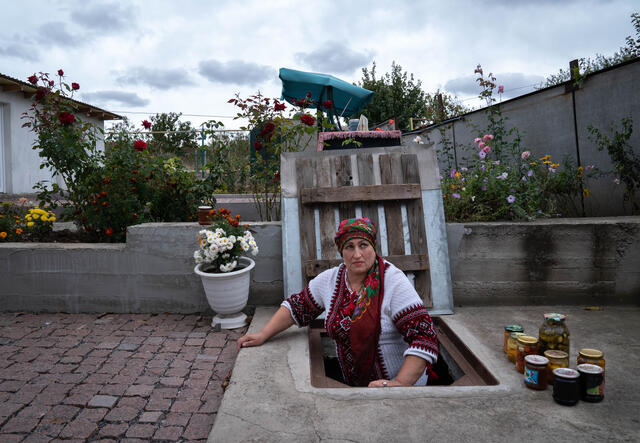
The war has taken a toll on Olga’s health, which had been compromised by cancer. “The stress, the nerves, and the cold” exacerbate her condition.
The IRC is providing Olga with cash assistance, which she is using to buy medicine.
Still, trapped inside an ongoing war, her days are filled with fear and uncertainty.
“You go to bed and you're afraid, you wake up and you pray,” she says. “You get up and you wait to see what happens next - I am waiting to see if it hits from above or not, and how it ends. I pray that our guys will all survive.”
When Olga reflects on her life before the war, it feels like a distant dream.
“We enjoyed our life. We smiled, we laughed…we sang, we danced…we lived like human beings.”
Despite everything, Olga continues to volunteer, distributing bread to people in her area. She hopes the energy she spends helping others will bring an end to the war sooner.
“I want to help those who are worse off, those on the front lines. I want to help the elderly, children, and the unemployed. I think the more we help each other, the faster it will be over.”
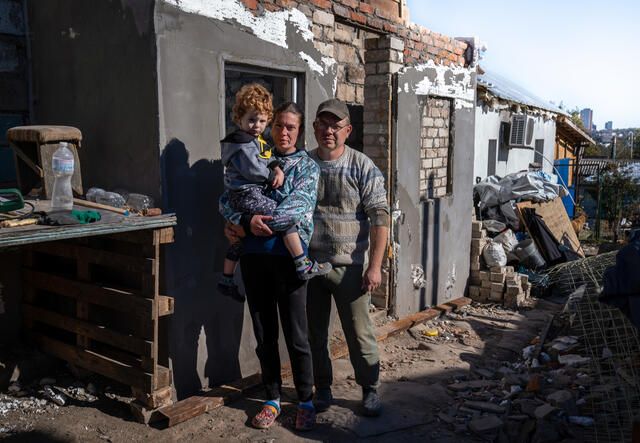
Maryna, her 3-year-old son, Rostik, and her 11-year-old daughter, Kira, were home when a missile hit their house at 1:00 a.m. Earlier in the evening, Maryna’s husband, Serhii, had left on a business trip to Kyiv, and Maryna had an uneasy feeling that something might happen while he was away.
Maryna doesn’t remember hearing the actual explosion: she just felt the blast wave pass through her house and saw the lights flicker off. Then she heard Rostik crying, and she realized he was stuck under debris.
Plaster had fallen on his legs. “I threw that clay to the side and took my son in my arms...I rushed out into the hall shouting, ‘Kira, Kira!’”
Thankfully, Kira was unharmed. Their pets - four kittens and a guinea pig - also survived.
“Kira only realised that something had happened when she heard my hysterical scream,” Maryna remembers. “The sense of fear itself came, probably, two days later. Especially when it got dark, and the siren rang. She was just trembling.”
The family spent that night amid the wreckage, still terrified from what had happened. The next day, friends and volunteers brought food and hot tea, and procured a portable charger, materials to board up the areas blasted open and tents.
Maryna keeps positive by imagining her future, remodeled home. She wants a big kitchen, lilac wallpaper - her daughter’s favourite colour - and a living room couch where overnight guests can sleep. The IRC is helping Maryna register for financial compensation for damages.
Despite the challenges that lie ahead, Maryna feels hopeful about the future. Though much of her house has been destroyed, she has a clear vision of what it will look like once it’s complete again: “Everything will be beautiful,” says Maryna, “in a new way.”
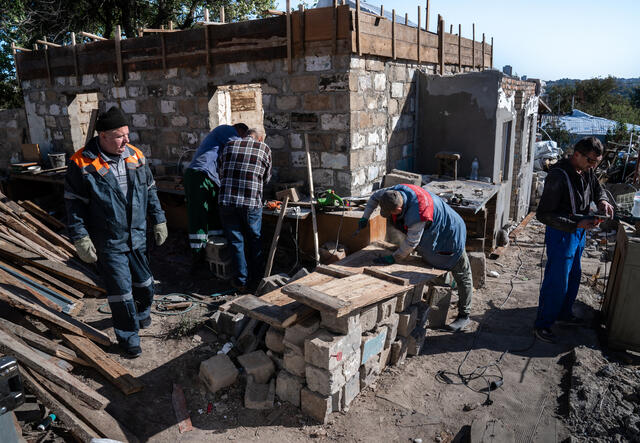
The IRC is scaling up its response efforts in Ukraine, Poland and Moldova to meet the evolving needs of displaced families by:
We are assisting Ukrainian refugees in Romania, Hungary, Slovakia, Czechiaand Bulgaria, as well as in Germany, Italy, Greece, the United States and the United Kingdom.
Learn more about the IRC's emergency response in Ukraine and Poland.